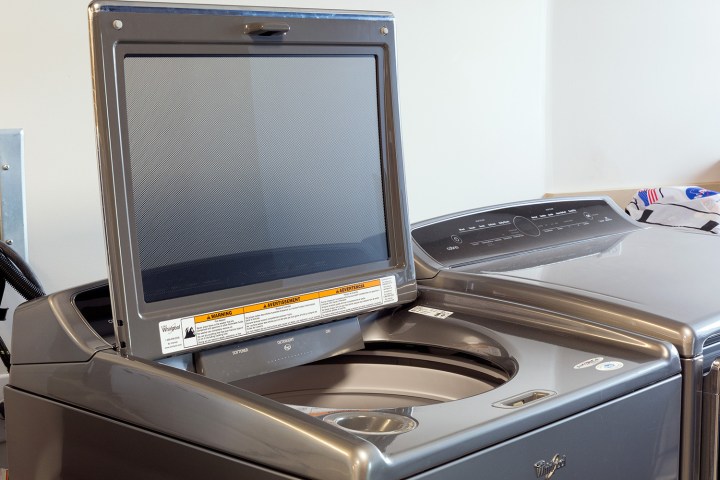
For more than a century, people could walk into a Sears store and buy a Whirlpool appliance. Soon, that will no longer be the case.
The brick-and-mortar store announced this week that the company will stop carrying Whirlpool and Maytag home appliances, including washers, dryers, and diswashers, in its stores. The companies have been partners for about a century, but once Sears runs out of its current stock of Whirlpool merchandise, the two will end their relationship. The parties reportedly couldn’t agree on a pricing deal that worked for both of them, leading to the fallout, USA Today reported.
Whirlpool — which recently announced plans to add Alexa and Google Home functionalities to some of its appliances — said the company had no choice but to raise the prices of its produces due to an increase in the price of the materials necessary to manufacture them. The company also owns KitchenAid and Jenn-Air products.
Sears broke the news via a memo to its stores that said the price increases “would have prohibited us from offering Whirlpool products to our members at a reasonable price.” Whirlpool informed the retailer of its decision in May.
About 3 percent of Whirlpool products are sold via Sears, which is now seeking to ship its Whirlpool products to other vendors. Thechain will still sell its own Kenmore appliances, and “will continue to make available top brands that members expect from us, including LG, Samsung, GE, Frigidaire, Electrolux, and Bosch,” according to a memo.
Sears has been on a long financial decline as a major retailer amid competition from other brick-and-mortar stores, as well as online outlets. The company recently announced the start of a restructuring program that will shed $1 billion in annual costs, while also reducing debt by $1.5 billion. The company is doing so by selling brands such as Craftsman. The company has announced layoffs and store closures — about 300 Sears and Kmart locations will shutter their doors as part of the restructuring initiative, leaving it with about 1,200 stores. The company s in March that it has “substantial doubt” regarding whether or not it can stay in business unless it borrows more and cuts costs, according to USA Today.


